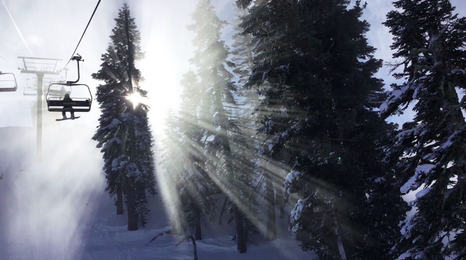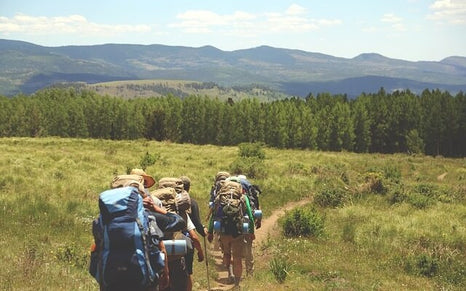Is Climate Change Killing Winter Sports?
There is no such thing as an average winter anymore. Snowpacks are thinner, snow seasons are shorter and weather patterns are unstable. Last december in America, for example, most mountains in the northeast were covered in brown mud and absolutely no snow, whilst in the west, a strong El Niño dropped more snow in a few weeks than in all of the previous winter.
As winter sports are an important economic contributor to many regions in North America and as winters have become highly unpredictable, many scientists and ski experts fear that this industry will suffer greatly in the coming years.
But is climate change really killing winter sports? It is obviously forcing the industry to adapt to Mother Nature's new mood swings, but it might not be killing winter sports per se, maybe it is just changing them.
Climate change forces ski resorts to kill old habits of using coal and non renewable energy sources. Companies adopt innovative plans to lower their greenhouse gas emissions: Aspen Skiing started capturing waste methane to generate electricity, Killington’s gondolas and the Peak Lodge are powered solely by manure from local dairy farms and Whistler Blackcomb announced a plan to become weather independent. Projects like Sustainable Slopes, Keep Winter Cool and Protect Our Winters are emerging all over the world to create a more sustainable ski industry.
Nature is changing the rules and snow sports will pay the price of it if they don’t make their businesses more weatherproof. Since winter snowfalls are less reliable, resorts have two options: make the most out of the snow they receive and can artificially create or offer alternative activities to visitors. These could be festivals, tours, competitions, indoor sports & recreation, pretty much anything that does not depend on snowfalls. It is all about expanding the season and bringing people to resorts even if there is no snow in the city or on the mountain.
In order to keep this vulnerable industry alive and make sure future generations get to ski as well, every stakeholder of the snow sports community must come together. Confronting this phenomenon will take strong leadership and creativity. The one good news is that the winter sports community is a strong and passionate one, able to accomplish such good things. We can play an important role in spurring action to reduce climate change, but we need to act fast. Winter is knocking at our doors so why not start acting this season?Image source: https://www.whistlerblackcomb.com/discover/why-whistler

